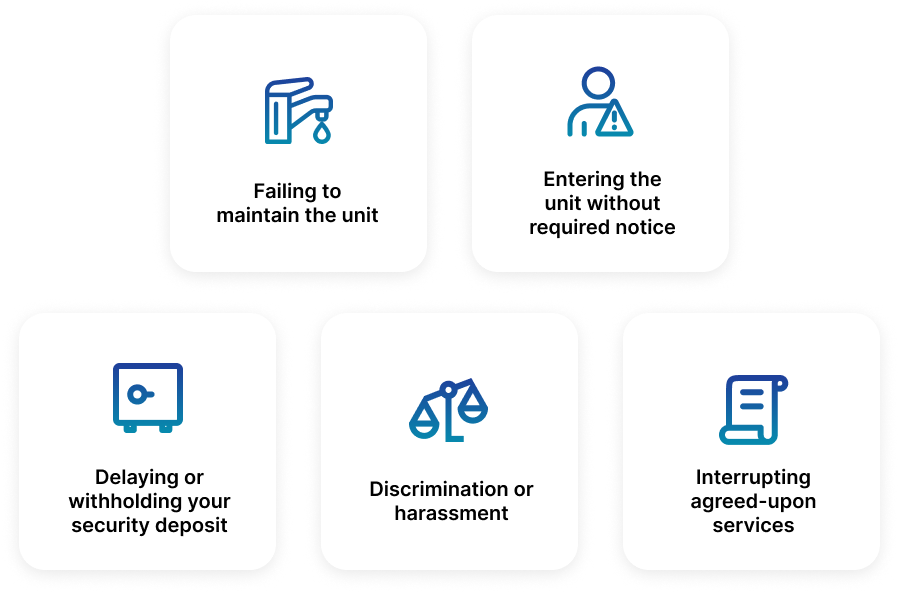What to Do If Your Landlord Isn't Following the Lease: A Tenant's Guide

If your landlord isn’t honouring your lease terms—ignoring repair requests, entering without notice, or delaying your deposit return—you’re not powerless. This guide outlines your rights, how to respond, and when to escalate.

Common Lease Violations by Landlords
- Failing to maintain the unit (e.g., heat, plumbing)
- Entering the unit without required notice
- Delaying or withholding your security deposit
- Discrimination or harassment
- Interrupting agreed-upon services (e.g., utilities, parking)
Step 1: Review Your Lease & Local Laws
Start by reviewing your lease—especially clauses around maintenance, entry, and deposits. Remember: even if something’s not in writing, BC’s Residential Tenancy Act may still require it.

Step 2: Document Everything
- Take dated photos/videos of any issues
- Save emails/texts and document calls
- Keep receipts for any out-of-pocket expenses
- Get witness statements if relevant
Step 3: Communicate in Writing
Send a written request to your landlord outlining the issue, referencing lease terms, and requesting resolution within a deadline. Be professional and factual. Use certified mail or email to ensure a record.
Step 4: Know Your BC Tenant Rights
- 24h notice is required for non-emergency entry
- You may be entitled to repair & deduct or rent withholding in serious cases
- Retaliation for filing complaints is illegal
- Landlords must keep the property livable under BC law

Step 5: Escalate If Needed
If the landlord doesn’t respond:
- Contact BC’s Residential Tenancy Branch
- File a dispute resolution request
- Use community legal aid, mediation, or housing advocacy groups
- Consider small claims court for deposit or damage disputes
Legal Options & Remedies
- Small claims court (for damages/deposits)
- Breaking lease due to constructive eviction
- Formal legal complaints for discrimination or unsafe conditions
- Consult a tenant rights lawyer if eviction or legal threats occur
Preventing Future Issues
- Research landlords and buildings before renting
- Always get promises in writing
- Document unit condition at move-in
- Learn your rights before signing any lease
Final Takeaway
Don’t let lease violations go unchecked. Start with written communication and documentation. If needed, escalate through legal and advocacy channels. BC law protects tenants—and so does Property Copilot.
THE AUTHOR
Lock in your free forever status
We're in early access. Join now and keep your first property free for life.







